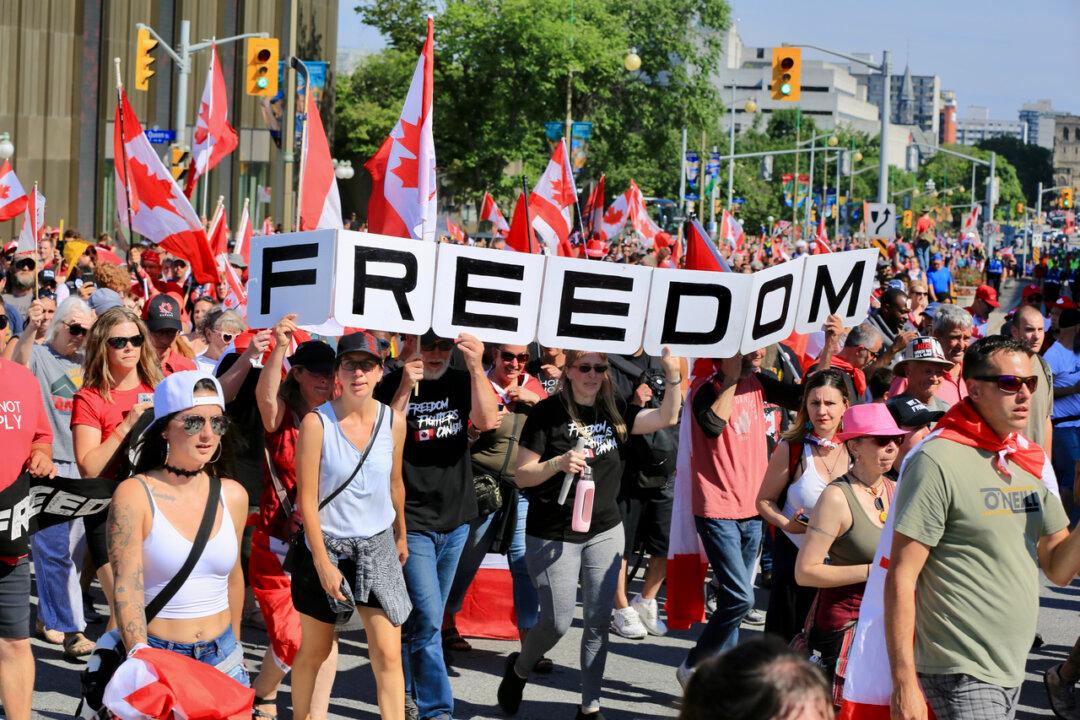The large number of police deployed in Ottawa during the Canada Day celebrations impeded Canadians’ freedom of speech and expression, said two lawyers who came close to being fined for displaying a banner on the sidewalk near Parliament Hill.
Adam Blake-Gallipeau, a lawyer from the legal charity The Democracy Fund, said he found an unusual focus on the enforcement of bylaws on “petty” issues that wouldn’t have needed the heavy police presence seen in Ottawa during the national holiday, which he said was “over the top.”





